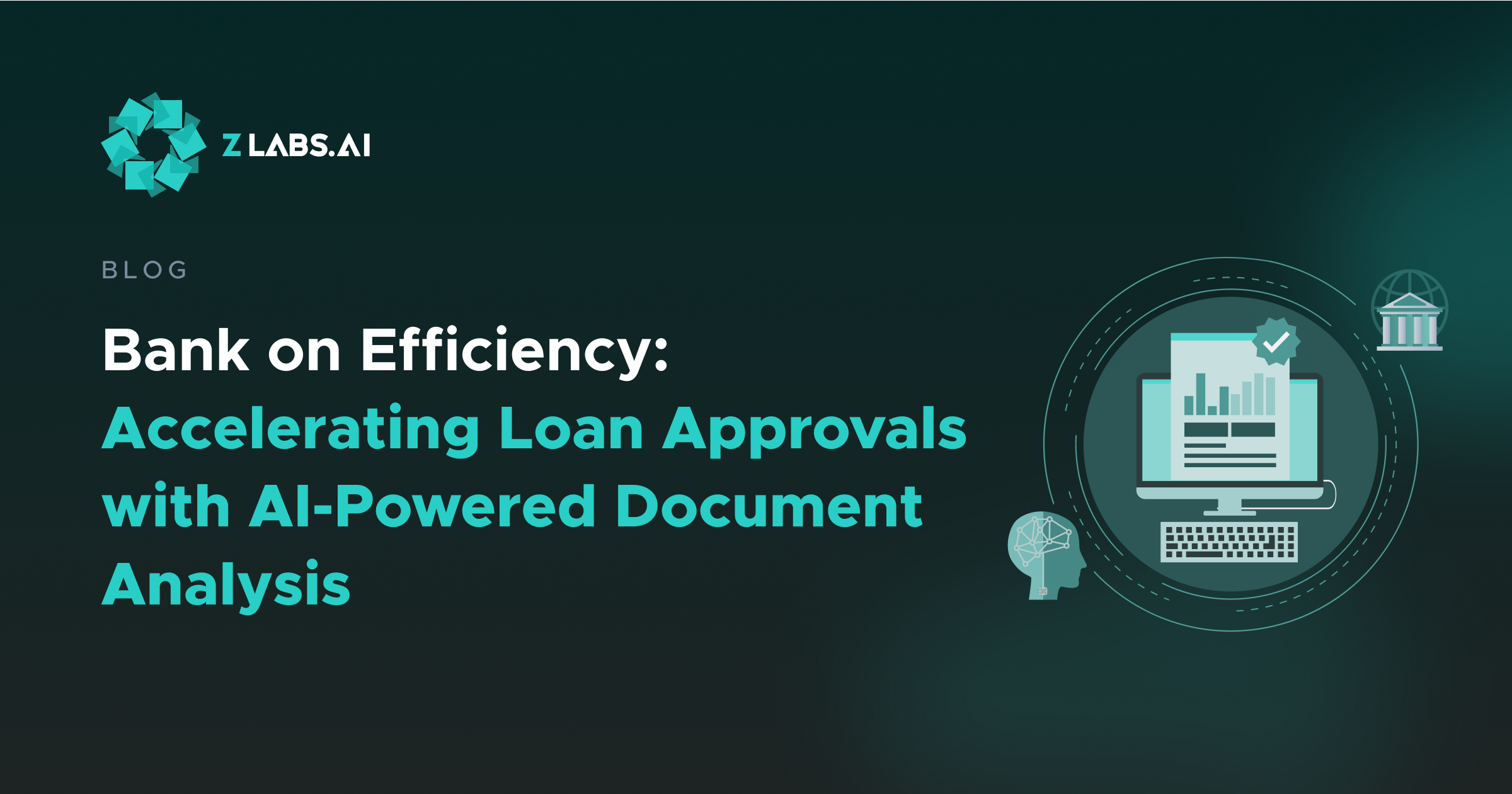Bank on Efficiency: Accelerating Loan Approvals with AI-Powered Document Analysis
In the fast-paced financial world, where time is of the essence and efficiency dictates success, the ability to swiftly and accurately process loan approvals has become a cornerstone of competitive advantage. Artificial Intelligence (AI) has emerged as a transformative force in this domain, specifically through AI-powered document analysis. For business owners navigating the complexities of financial decision-making, understanding and leveraging this technology can significantly enhance operational efficiency and customer satisfaction.

The AI Revolution in Loan Approvals
Traditional loan approval processes are often bogged down by manual document review, which is time-consuming and prone to human error. This inefficiency not only delays approvals but also increases operational costs and risks of inaccuracies. AI-powered document analysis, however, promises to revolutionize this landscape.
According to a report by McKinsey, banks that have implemented AI-driven document analysis systems have seen loan processing times reduced by up to 70%. This drastic reduction in processing time is a game-changer, enabling banks to approve loans faster and more accurately, thereby improving customer satisfaction and retention rates.

How AI-Powered Document Analysis Works
AI-powered document analysis leverages machine learning (ML) algorithms and natural language processing (NLP) to automate the extraction, classification, and validation of data from various documents. These technologies enable the system to understand and interpret the content of documents, identify relevant information, and cross-verify data against multiple sources for accuracy.
For instance, a typical loan application involves reviewing numerous documents such as income statements, tax returns, credit reports, and employment verifications. An AI system can automatically scan these documents, extract the necessary information, and flag any discrepancies or missing data. This not only speeds up the review process but also ensures a higher degree of accuracy.
Exciting Developments and Innovations
The landscape of AI-powered document analysis is rapidly evolving, with several innovative advancements making headlines:
-
Advanced NLP Capabilities: Modern NLP algorithms have become increasingly sophisticated, enabling deeper understanding and context analysis of unstructured data. This means AI can now interpret complex financial documents more accurately than ever before.
-
Integration with Blockchain: Integrating AI with blockchain technology adds an extra layer of security and transparency to the document verification process. Blockchain's immutable ledger ensures that all document transactions are securely recorded and easily auditable.
-
Enhanced Fraud Detection: AI systems are now equipped with advanced anomaly detection capabilities. These systems can identify patterns and red flags indicative of fraudulent activities, thus safeguarding banks against potential losses.
-
Cloud-Based Solutions: Cloud computing has enabled the deployment of AI-powered document analysis as a service. This accessibility allows even smaller banks and financial institutions to leverage this technology without significant upfront investments.
Statistical Insights and Industry Impact
The impact of AI-powered document analysis on the banking sector is substantiated by compelling statistics and industry reports:
-
Operational Efficiency: A study by Deloitte found that AI can reduce the time spent on document processing by up to 90%, leading to significant cost savings and operational efficiencies.
-
Customer Satisfaction: According to a survey by the World Economic Forum (WEF), 75% of customers reported higher satisfaction levels when their loan applications were processed more quickly and accurately using AI systems.
-
Error Reduction: Forbes reports that AI-driven document analysis can reduce errors in document processing by up to 85%, minimizing the risk of incorrect approvals or rejections.
-
Scalability: AI systems can handle large volumes of applications simultaneously, making them highly scalable solutions for banks experiencing fluctuating demand levels.
Real-World Applications and Success Stories
Several leading financial institutions have already reaped the benefits of AI-powered document analysis:
-
JPMorgan Chase: The banking giant uses AI to review commercial loan agreements, significantly cutting down the review time from thousands of hours to mere seconds. This efficiency has translated into faster service for clients and reduced operational costs.
-
HSBC: By integrating AI into their loan approval process, HSBC has streamlined its operations, enabling quicker turnaround times and enhanced customer experiences.
-
Lloyds Banking Group: Lloyds has employed AI to automate the processing of mortgage applications, resulting in a more efficient and accurate approval process that benefits both the bank and its customers.
The Future of AI in Loan Approvals
As AI technology continues to evolve, its applications in loan approvals are expected to expand and become even more sophisticated. Future advancements may include:
-
AI-Powered Predictive Analytics: Predictive analytics can provide deeper insights into applicant behavior and creditworthiness, enabling more informed decision-making.
-
Robotic Process Automation (RPA): Combining AI with RPA can further automate repetitive tasks within the loan approval process, freeing up human resources for more complex decision-making tasks.
Conclusion
In today's data-driven world, efficiently managing and analyzing vast amounts of structured and unstructured data is crucial for business success. AI-driven document analysis systems, such as DocuSenze, offer streamlined document management with features like automated metadata extraction, intelligent query handling for precise information retrieval, and advanced machine learning and generative AI for deeper data insights. Enhanced text analytics, intelligent search and indexing, and custom dashboards for data visualization further empower organizations to transform data into actionable insights. Robust compliance and data privacy features ensure secure handling of sensitive information, while seamless teamwork and information sharing promote a collaborative work environment. By adopting these systems, businesses can revolutionize their processes, turning data challenges into opportunities for growth and innovation.